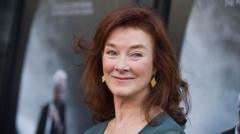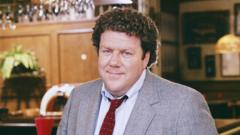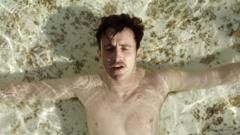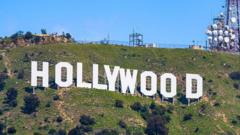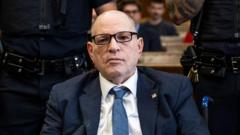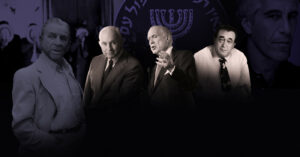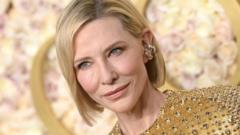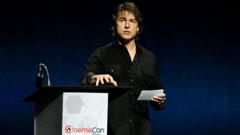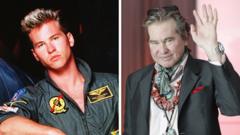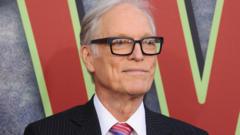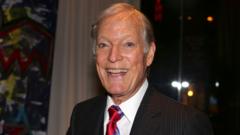George Richard Chamberlain, born on March 31, 1934, rose to fame in the 1960s as Dr. Kildare, garnering massive admiration and drawing in audiences. Despite a few setbacks, he found his footing in the 1980s, dominating TV mini-series with unforgettable roles in "Shogun" and "The Thorn Birds." Though he kept his sexuality private for much of his life, he bravely came out in his 2003 memoir, advocating for authenticity in the industry. His ability to captivate audiences, notably with complex characters, will long be remembered.
Richard Chamberlain: The Iconic Star of Television's Golden Era
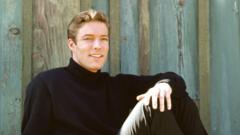
Richard Chamberlain: The Iconic Star of Television's Golden Era
Richard Chamberlain, the beloved television heartthrob, has passed away at the remarkable age of 90, leaving a legacy in the world of entertainment.
Richard Chamberlain, who has died today at the age of 90, shot to fame as TV heartthrob Dr. Kildare in the 1960s. His dashing good looks won him legions of female fans, and guaranteed him work in a plethora of rather forgettable television movies. But, in middle age, his career spiked again. Chamberlain became king of the 1980s TV mini-series, playing a western prisoner in "Shogun" and a Catholic priest tempted by love in "The Thorn Birds." He denied being gay when confronted by a French magazine in 1989, and did not speak publicly about his homosexuality until he turned 70. In interviews promoting his 2003 memoir, he advised other handsome leading actors to keep their sexuality to themselves.
"There's still a tremendous amount of homophobia in our culture," he said. "Please, don't pretend that we're suddenly all wonderfully, blissfully accepted." Born George Richard Chamberlain on March 31, 1934, in Beverly Hills, California, he died one day before his 91st birthday. His salesman father had a problem with alcohol, which affected young Richard's upbringing. He described himself as a "shy, serious, lugubrious kid, painfully thin, with a long, sad face."
He admitted to being the most "uncooperative kid in school," but discovered a taste and a talent for athletics. At Pomona College, he was bitten by the acting bug—a role in Bernard Shaw's "Arms and the Man" convinced him he had found his calling. Paramount Studios showed interest, but thoughts of an acting career were postponed when he was drafted, serving 16 months as a sergeant in the Korean War.
Upon his discharge, he made cameos in various TV shows, including an episode of "Gunsmoke." Not everyone had Chamberlain picked as a future star. While he was handsome enough—profiles at the time praising his "fine-lined aristocratic face"—he was naturally diffident, which worked in his favor during his audition for Dr. James Kildare, a medical intern in NBC's primetime medical drama. "Perhaps it was inevitable," one friend-and-rival mused, "Who else could look so anti-sceptic as Dick?"
The series ran for nearly 200 programs across five seasons, breaking new ground by addressing issues like drug addiction for the first time on television. Female fans flooded him with 12,000 letters weekly. In Pittsburgh, 450,000 people attended a parade in his honor, and in New York, he nearly incited a riot when a child spotted him.
Capitalizing on this attention, the studio released novels, comics, and games featuring Chamberlain's likeness. He had an unlikely musical hit with “Three Stars Will Shine Tonight," featuring romantic lyrics set to the show's theme. He won a Golden Globe Award for Best TV Actor in 1963; however, audiences began to dwindle three years later, leading to NBC discontinuing the show.
An international star now, Chamberlain struggled to break free from Kildare, hoping to make a name in film. Sadly, his debut romantic comedy, "Joy in the Morning," faced harsh criticism. Determined to avoid Hollywood, he aimed to earn a living on stage, despite a wobbly start with a musical adaptation of "Breakfast at Tiffany's," which closed after just four performances—one of Broadway's infamous flops.
His move to England provided opportunities for reinvention as a serious actor. In 1967, he starred in Henry James' "The Portrait of a Lady," and in the following year became the first American to portray Hamlet at Birmingham Repertory Theatre since John Barrymore. His performance received excellent reviews, leading to a televised version for Hallmark. Chamberlain took on Tchaikovsky in Ken Russell's biopic "The Music Lovers," which initially received critical reviews but later developed a cult following.
His roles in other productions solidified his versatility, including portraying Lord Byron in "Lady Caroline Lamb" and the swashbuckling Aramis in "The Three Musketeers," along with an ensemble role in "The Towering Inferno." The late 1970s revival of mini-series, following "Roots," saw Chamberlain commanding the screen once more in "Shogun" as John Blackthorn, leading to massive viewership.
Winning another Golden Globe for his role in "The Thorn Birds," he embodied a conflicted priest chasing love, captivating more than half of television viewers and earning 16 Emmy nominations. As the 1990s approached, his career became steady but less remarkable, leading to follow-ups like "The Missing Years."
His candid biography, penned in 2003, unveiled his sexuality to the public after a long-standing relationship with Martin Rabbett. Despite his struggles with hiding his identity, he expressed no regret over his decision to protect his career. In later years, he embraced roles reflecting his true self, appearing on shows like "Will & Grace" and continuing with musical theatre performances.
Remembered as the king of the TV mini-series, Richard Chamberlain's charismatic presence entertained millions, showcasing an extraordinary ability to resonate with audiences—echoing through television history.


